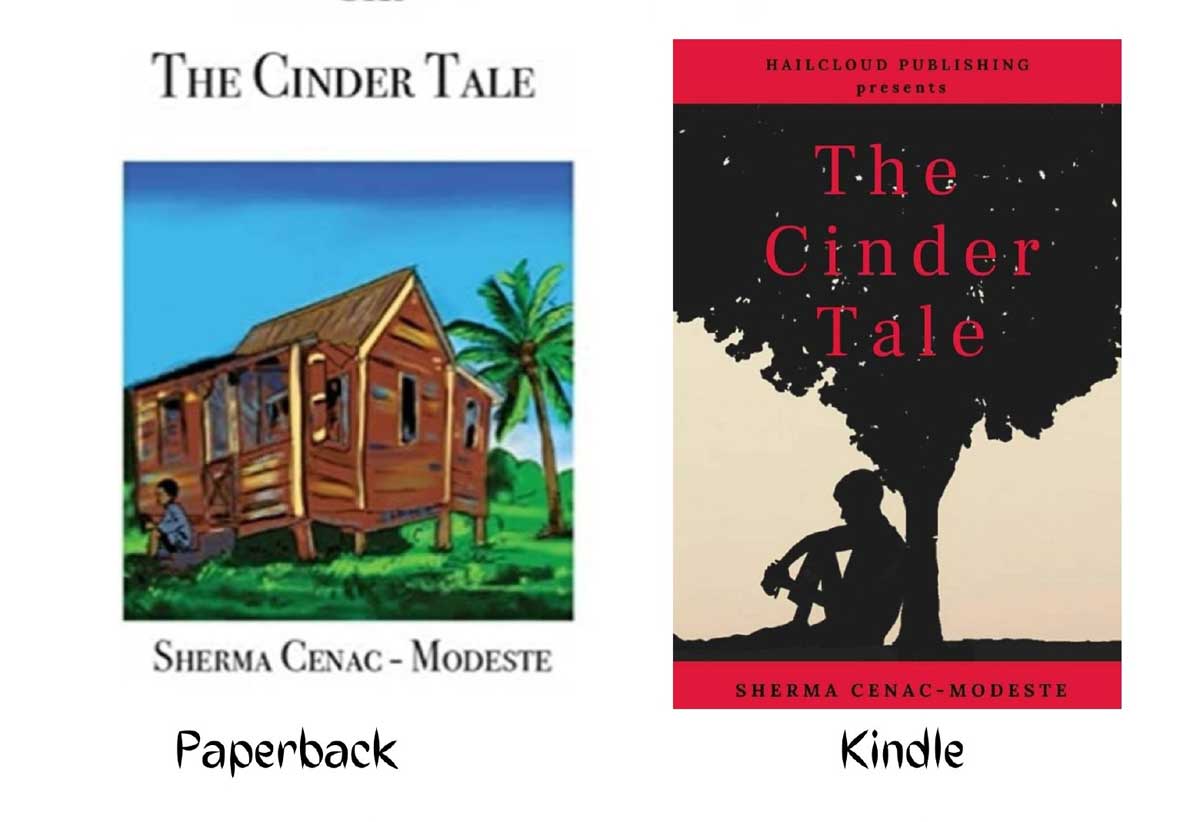
The tale begins with: “His frail body had endured indescribable emotional turmoil.” A sentence that lured me to plunge headlong into the bubble of fantasy to discover more, and to break surface only after I had accompanied Cinder on his painful journey down to the last word.
Cinder Tale is not a sequel to Cinderella. There is no fairy godmother, coach and ball, etcetera. But the Cinderella story certainly captivated Sherma, blossomed in her mind and bore fruit in the form of a literary treat that speaks to the domestic abuse of children from time immemorial and, true to form, in these contemporary times, the world over. Cinder Tale is a story that will tug at your heart strings because you cannot help but empathize with this lad who was a victim of circumstances.

Imagine him, for instance, sitting on a “cold, tiled floor … scrubbing grout with a toothbrush.” Reminiscent of Booker T. Washington (don’t you think?) about a room that he was asked to sweep. The head teacher, after wiping the floor with her handkerchief, couldn’t find a speck of dust! So thorough was the cleaning. In Cinder’s case, after the death of his father in a car accident, and then his beloved mother while birthing twins, was obliged to obey the demands of his stepfather in his “mile-long list of chores”. Cinder had learned the hard way: “The scars that ran down the length of his back served as a constant reminder of the consequences of disobedience.”
But the Tale is not all tantrum and tears, blood and gore. Look at this gem in the morass – Cinder’s soft, sweet side while being ‘manny’ to his innocent, adorable twin siblings: “… lifting his brother from the crib he kissed him smack in the middle of his forehead. ‘I love you, buddy.’” No amount of abuse could dispel the sunshine in Cinder’s young heart as his nobility shone through, regardless. But there were challenges.
At school, his nemesis, Cody, “the oldest student at the school having repeated three grade levels” deviant, unruly and menacing, awaited. Cody picked on him and made his life miserable but, as the saying goes ‘every rope has an end’. Cinder had had enough and he retaliated, his fury “unstoppable”. He had lost it and expected the consequences to be dire – from the headmistress and the ogre at home, his merciless stepfather. But here the tale took a turn. Stepfather Brydon had not travelled on the road to Damascus but he too had seen a blinding light. He had, of late, feelings of regret at illtreating Cinder and desired to mend his relationship with his stepson.

The rest of the story is packaged neatly, resolving the problem between the boys and providing help for them to deal with their emotional issues.
Cinder Tale is more than a story of abuse with an ending where the protagonist ‘lived happily ever after’. There is much enjoyment in the writer’s craft; the way Sherma tells the story, page after page compelling the reader to continue reading and delighting him at the same time. Primary school students and their seniors should be thrilled at reading this story and, I know for sure, that long will they remember it. Go to Amazon and check for The Cinder Tale by Sherma Cenac-Modeste and get your copy.




![Attendees at the UHC logo and website launch [Photo credit: GOSL]](https://thevoiceslu.com/wp-content/uploads/2026/02/Attendees-at-the-UHC-logo-and-website-launch-380x250.jpg)






![Remnants of an alleged drug boat blown up in a lethal strike by the U.S. military last week surfaced off Canouan on Saturday [Photo credit : St Vincent Times]](https://thevoiceslu.com/wp-content/uploads/2026/02/Remnants-of-an-alleged-drug-boat-blown-up-380x250.jpg)

